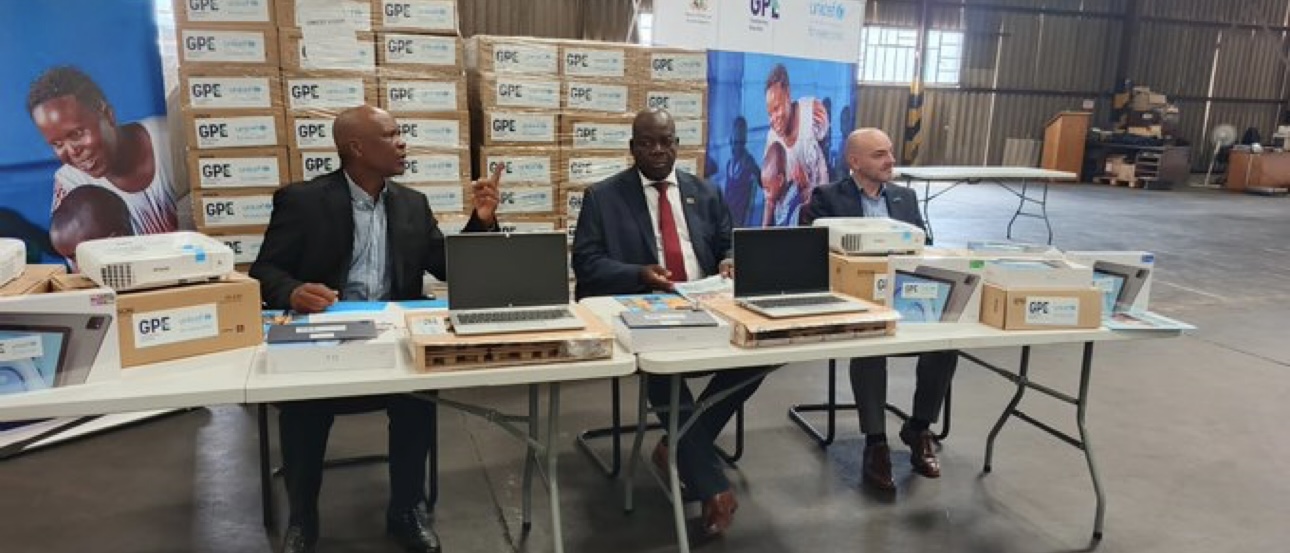BY NOKUTHABA DLAMINI
In a small corner of Victoria Falls, a 92-year-old woman named Esther Mpofu calls Chinotimba Old People’s Home her own.
Allegedly accused of witchcraft by her daughter-in-law and abandoned by her son, she was deprived of the right to family life as stated in Section 72 of the constitution.
Mpofu was left at the home 23 years ago and has never seen her seven grandchildren since.
The pain still lingers, and the isolation has taken a toll on her mental health.

Esther Mpofu
“I had to comply because that’s what my son wanted for the sake of peace,” Mpofu recalls, her voice trembling.
“I had nowhere to go, no one to turn to, and coming here was the only option available because all my siblings died long ago. What I’m left with is for God to give me some rest because my soul is not at peace.”
As we spend time with her, we meet others like her – abandoned, lonely, and struggling with depression.
The home’s caretaker, Netie Chindedza, shares stories of similar heartbreak, of families turning their backs on their elderly loved ones.

Netie Chindedza
“It’s just that we cannot have everyone here because of the resources, but if you go around these rural communities, children are abandoning their families, elderly people,” she says.
“Most of them are being accused of witchcraft, while some get tired of seeing them age, and this is the reason why we had to form this home to relieve the abandoned elderly people and save them from depression.”
As we left the female ward, we were taken to the male ward, where we met another elderly man, 82-year-old Jimmy Ndlovu from Nkayi district.

Jimmy Ndlovu
His story was similar – abandoned by his family, he had to travel over 700 kilometers to Victoria Falls to find a home first at Chidobe village in Hwange, and at the charity care facility due to drought-induced poverty.
He has been at the home for a couple of months now.
“I was brought here by my daughter, who is married in Filabusi, I was starving, and I had no one to turn to,” Ndlovu says.
As we listened to Ndlovu’s story, we couldn’t help but ask ourselves, how could families turn their backs on their loved ones like this?
But our journey wasn’t over yet. As we moved on, we met another elderly man, 96-year-old, whose destination is unknown.

He is deaf and unable to sit on his own, relying on diapers and constant care from the facility’s staff.
The Hwange district medical officer, Fungai Musinami, notes that such issues of neglect are rampant, and many dying in silence leading to depression.
“There is this concept in our society that a real man doesn’t cry, doesn’t struggle, and has to be strong. But men and elderly people also struggle with depression and anxiety, and we’ve seen them commit suicides due to feeling uncared for.”
The African Charter’s Article 14 states: Every individual shall have the right to enjoy the best attainable state of physical and mental health.
But why is this happening in the communities?
Musinami explains, “Our society perpetuates a harmful narrative that these must be invincible. But the truth is, they are human too. They face financial pressures, relationship stress, feeling unloved…just like any other person. And when they can’t cope, they’re more likely to take their own lives.”
The statistics are chilling – recent research published by the Ministry of Health and Child Care and UN partners states that mental health-related morbidity and mortality are increasing in Zimbabwe, with anxiety disorders estimated to affect 2.8 percent of the population and account for 4 percent of total years lived with disability.
For example, 38 suicide attempts, elderly people included, were recorded in January and February this year at Mpilo Hospital, up from 11 in the same period last year.
Assistant Commissioner Paul Nyathi, the Zimbabwe Republic Police spokesperson, added that witchcraft allegations are rampant, leading to violent attacks and displacement.
“We have received similar cases like those (Mpofu’s), as you might have seen the incident where Masvingo man and his three daughters, including a juvenile, were arrested over a brutal murder of a 77-year-old and 92-year-old relatives rooted in witchcraft allegations.”
“Let me make this clear, in our constitution, it is an offense to call another person a witch and you can be tried in courts for that.”
Under the Witchcraft Suppression Act (Chapter 10:09), Section 3: Prohibits accusing someone of being a witch or practicing witchcraft while Section 4: prohibits damaging someone’s reputation by accusing them of witchcraft.
For this, Nyathi urges the communities to seek counseling services through the traditional and religious leaders and even through police’s counseling section.
Efforts to trace Mpofu’s son have been fruitless as his contacts, which he gave her are not reachable and at the care, they do not know the village where he lives.

 Slider3 years ago
Slider3 years ago
 National4 years ago
National4 years ago
 Tourism and Environment4 years ago
Tourism and Environment4 years ago
 Opinion4 years ago
Opinion4 years ago
 Special reports4 years ago
Special reports4 years ago
 National4 years ago
National4 years ago
 National3 years ago
National3 years ago
 National3 years ago
National3 years ago







